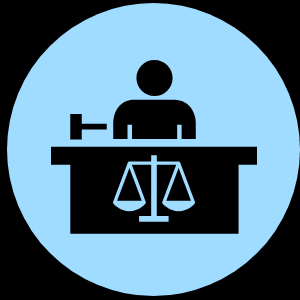The Government and Public Services AI Dossier
Top uses for AI in government and public services — now and in the future

Discover applications and benefits for AI in the public sector
In the government and public services (GPS) industry, AI adoption and maturity levels tend to vary depending on the government agencies, their existing infrastructure’s reliance on legacy systems, and workforce fluency.
Defense, intelligence, and law enforcement agencies are commonly deploying and scaling AI, actively embracing advanced technologies such as computer vision, leveraging graph analysis, using deep neural networks to uncover suspicious activities and actors in large data sets, streamlining functions and supporting the warfighter in mission applications and weapons systems, and monitoring and improving readiness of personnel and equipment.
Civil and health agencies are leveraging AI across the AI spectrum—from early stages of conducting assessments to evaluate the organization’s readiness for AI and identify where it could bring the greatest return on investment, to operationalizing and deploying AI for a wide range of critical use cases such as climate and economic analysis, trade surveillance, research, and fraud detection.
Looking across the public services, a common trend emerges from the growing use of robotic process automation (RPA) to automate back-office activities such as finance and HR, which makes government agencies more efficient, improves to the job satisfaction of public servants, and increases the quality of services offered.
Several state governments have begun adopting AI/ML capabilities to improve and support the services they provide to their citizens, including areas such as public transit, modernizing DMV capabilities, and helping make intelligence decisions for enrollment analytics.
of government AI and data analytics investments aim to directly impact real-time operational decisions and outcomes by 2024.
of government organizations are still at the initial or developing digital maturity stages.
Facing the top obstacles
Compared to private sector organizations, government agencies face additional legal and risk constraints which can inhibit their ability to quickly adopt and deploy AI.
- Navigating trustworthy AI: Given their responsibility to support the public in an equitable manner, public services organizations tend to face high standards when responding to fundamental AI issues such as trust, safety, morality, and fairness. In the face of these challenges, many government agencies are making a strong effort to harness the power of AI while cautiously navigating through this maze of legal and ethical considerations.
- AI investment is not a priority: Government budgets fund specific programs and activities—not necessarily the underlying technologies that enable them—meaning AI investment generally plays a supporting role in public services plans and strategies, rather than on the converging and enabling collection of technologies themselves.
- Lack of AI and data management skills: Public agencies find themselves without core AI skills, which hinders their ability to deploy and operate AI solutions. Government personnel in non-technical roles, such as department directors, policy-makers, and procurement officials do not always have enough understanding about data and AI.
- Legacy culture: All organizations face challenges in adopting new technologies. However, public entities tend to be less agile than their private sector counterparts, due in part to their established practices and processes so it can be difficult to adopt a transformative technology such as AI if agility is not inherent to the organization’s culture.
AI use cases for government and public services
AI holds the potential to vastly improve government operations and help meet the needs of citizens in new ways, ranging from traffic management to healthcare delivery to processing tax forms. The use of AI in government must take into account privacy and security, compatibility with legacy systems, and evolving workloads.
Applications of artificial intelligence to the public sector are broad and growing. Public servants are using AI to help them make welfare payments and immigration decisions, detect fraud, plan new infrastructure projects, answer citizen queries, adjudicate bail hearings, triage health care cases, and establish drone paths.
Health agencies are leveraging AI to expedite the process for drug trials, drug discovery, and analysis of health records and medical data (including complex imaging data from microscopes, MRIs, and x-rays). This has led to a spur of greenfield and brownfield projects in genomic and personalized medicine.
of governments will have at least three enterprise-wide hyperautomation initiatives launched or underway by 2024.
of business leaders support government investment in fundamental AI research.
Understanding what can be achieved by AI today
Explore five use cases depicting how government and public service agencies are harnessing the power of AI to improve organizational efficiency and drive digital government transformation:
Opens in new window

Spotting trouble before it occurs
Video Surveillance Predictions Using AI and computer vision-enabled video surveillance to detect potential security threats more quickly and accurately.

The art of war in the AI era
Agent-based Simulations to Refine Military Strategy Using deep learning to simulate tactical moves and refine military strategy in real time.

City of the future
Civil Asset and Infrastructure Management Using AI to monitor and maintain a city’s physical assets and infrastructure, ensuring they are fully functional and operating safely.

Augmenting and assisting the judgement of our judges
Legal Outcome Predictions Using machine learning and deep learning to analyze decades of case law — and millions of past cases — to predict outcomes for future cases and accelerate case resolutions in both domestic and international courts.

Making adaptive learning truly adaptive
Education Tech: Learning Analytics for Adaptive Learning Using AI to deliver a one-on-one education experience that truly adapts to the needs and abilities of the learner.
Opens in new window








